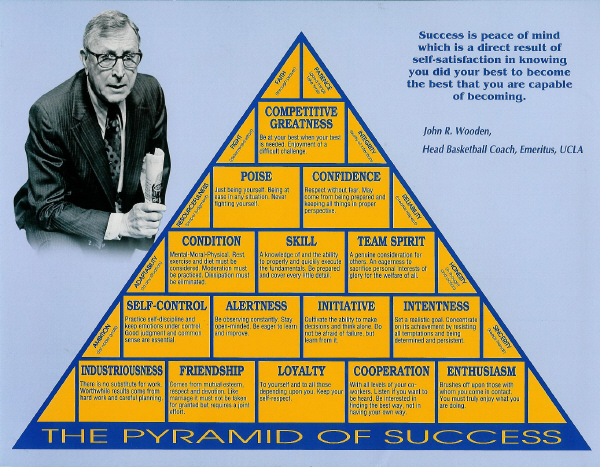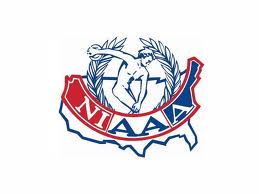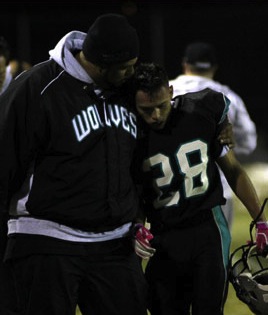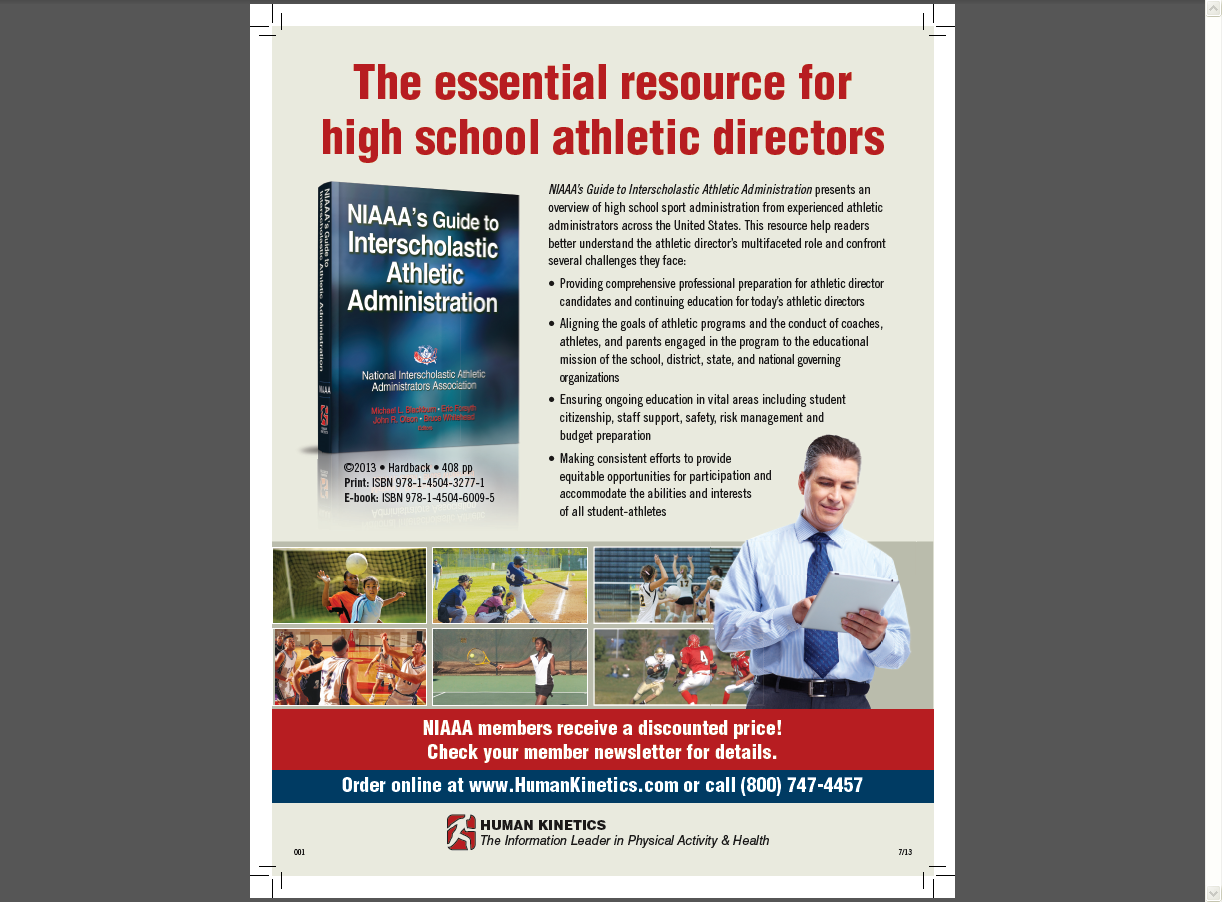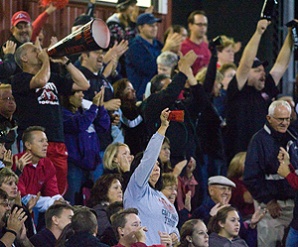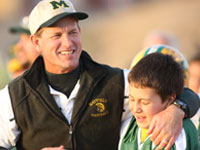Success Through Caring
By John McCarthy
John McCarthy is a former college basketball coach, Athletic Director and Director of two national collegiate basketball events. Today, he is a sports entrepreneur and travels the country giving the Lessons of the Legends presentation to coaches of all sports at all levels. To learn more about John McCarthy and/or the Lessons of the Legends, please visit www.johncmccarthyjr.com. To contact John McCarthy, please e-mail him at johncmccarthyjr@gmail.com.
Over my career in collegiate athletics, I’ve been intrigued with highly successful coaches. I’m talking about ultra successful coaches that have sustained success on and off of the playing fields for long periods of time. I’m very interested in what we can learn from these highly successful coaches, and I’m interested in learning how coaches can significantly enhance their own programs and their own lives by applying such lessons.
With these thoughts in mind, I began to identify and study multiple coaches in great detail. The result has become a detailed presentation and a booklet. With the popularity of the presentation, I am in the process of turning the Lessons of the Legends into a book and DVD.
As such, I wanted to write this article to focus on one aspect of my research. Please note, and this is important, that this is just one part of a presentation that is typically two-and-a-half to three hours, so this is clearly just one of the many lessons that we can learn from highly successful coaches.
The coaches that I have studied in great detail – and others that I have studied on the surface – have taken great care to create a caring and loving environment within their team. I remind you that I have spent a great deal of time researching some of the greatest “winners” in sports in this country, and yes, a real key to sustaining successful programs is the ability to create this special environment within their teams.
Remember the old saying from former President Theodore Roosevelt, “They don’t care how much you know until they know how much you care.”? This is particularly true within athletics.
In order for coaches to build trust, and build a community where players play their hearts out, they must care. Care about the game. Care about their team. Care about teammates and coaches. The great programs are the ones in which every single member of the team – and coaches – sincerely care about each other.
Mike Harrity, Associate Athletic Director at Notre Dame, spent a great deal of time researching such characteristics of highly successful coaches, which resulted in an excellent book titled, Coaching Wisdom. Chapter One of the book is aptly titled, “Creating a Caring Environment”. Harrity wrote, “In nearly every interview I conducted, many of whom have earned numerous championships at the highest level, it was apparent that they care deeply about their athletes…..caring about your athletes is arguably the most important thing that you can do as a coach…..and it may just win you a championship.”
Sue Enquist, the legendary former UCLA softball coach, said, “It was about kids getting to know each other outside of the ball field, because that does help to make a stronger team…..if we have a team that loves each other, we are at a huge advantage.”
In the book, When the Game Stands Tall, author Neil Hayes writes about legendary DeLaSalle High School football Coach Bob Ladouceur, …. “the key component to his success is the most basic of human emotions – love.” Patrick Walsh, who formerly played for Coach Ladouceur before becoming a Head Coach himself (Serra High in San Mateo), said, “Lad creates an environment where you can cry in front of your friends and tell them you love them. What do they do at the end of chapel service? They hug. Do you know how hard it is to get high school kids to do that? It wasn’t until my first chapel service at Serra that I learned that love is the key to everything they do.”
When players know that you really care about them – genuinely care about them as human beings – then they will pour their hearts out competing for the team. Remember the word that Coach John Wooden’s considered his favorite – and most powerful – in the English language? LOVE. His players would do whatever he asked of them, with all of their effort, mentally and physically, because they knew that he genuinely cared about them.
Said Ed Ehlers, who played for Coach Wooden at South Bend High School: “People ask me, ‘What was so great about Coach Wooden?’ And as I look back, yes, he was a great coach. He gave great pep talks and great practices. But that’s not what I remember. What I remember is him as a person. He was so much more than a coach. Coach Wooden was such an example of sincerity and honesty that I wanted to be like him. We weren’t just players to him. We were people he cared about. He got within you. And you believed in him……If he told you to run through that wall, you’d do it because you believed in him.”
Most college football fans know about legendary Nebraska Football Coach Tom Osborne, yet it was the players who knew how much he cared about them as human beings. Says former Nebraska player Jim Pillen, “Coach Osborne showed me that he cared about me and valued me. After that day, I’d run through a brick wall for him.” Coach Osborne led the Cornhuskers to three National Championships within four years with players that played their hearts out, in part because they knew that their coach cared about them as people.
In Indianapolis, football Coach Tony Dungy took great care to build genuine relationships with his players. Former Colt Don Davis noticed. “You played hard for him because you didn’t want to let him down. There was correction, you were held accountable, which you have to have on the football field, but at the same time you were treated like a man, and he had an ability to connect with athletes from that perspective. And I think because of that, he cared. He knew my wife’s name. He would ask how my day was going. I think that was his gift. His ability to connect, and because you knew he cared about you as a man, it makes you want to play for him all the more.”
As a Coach, you have a tremendous opportunity to be a force for good. You have the ability to impact the hearts and minds of young people. As legendary high school football coach, Bob Ladouceur, said, “I don’t know of another person in America that has a more important job in America than me.” Please remember the importance and value of the coaching platform. With that, I leave you with this important thought from Carl Buechner: “They may forget what you said. But they will never forget how you made them feel.”



